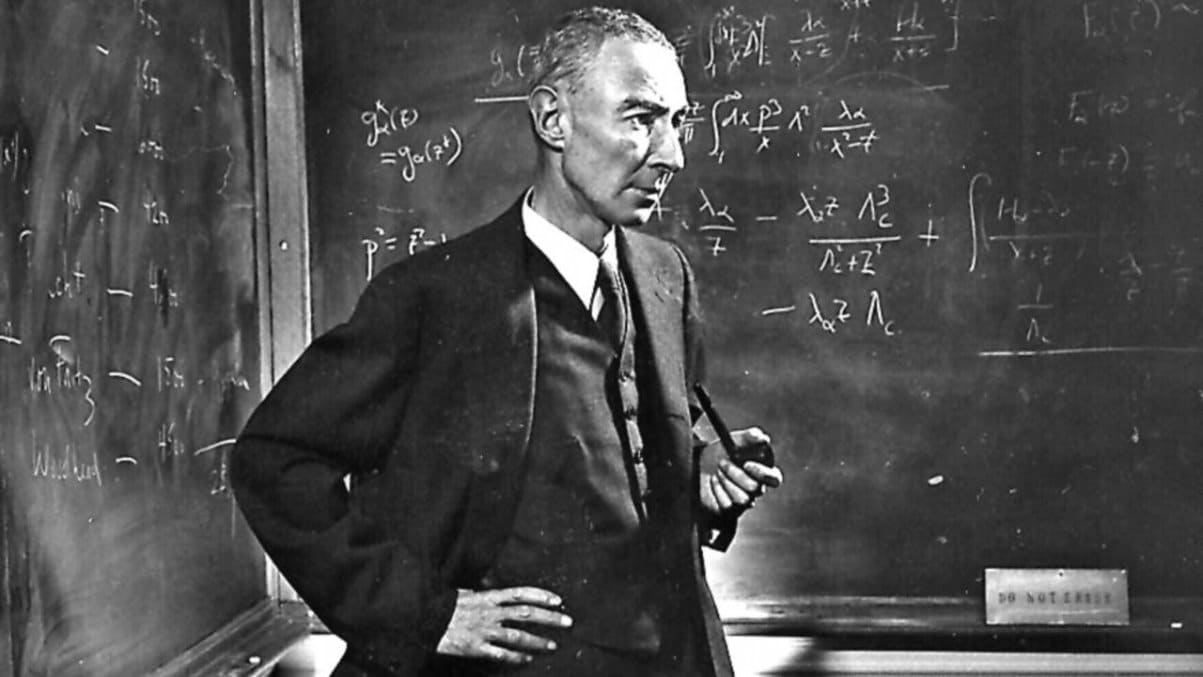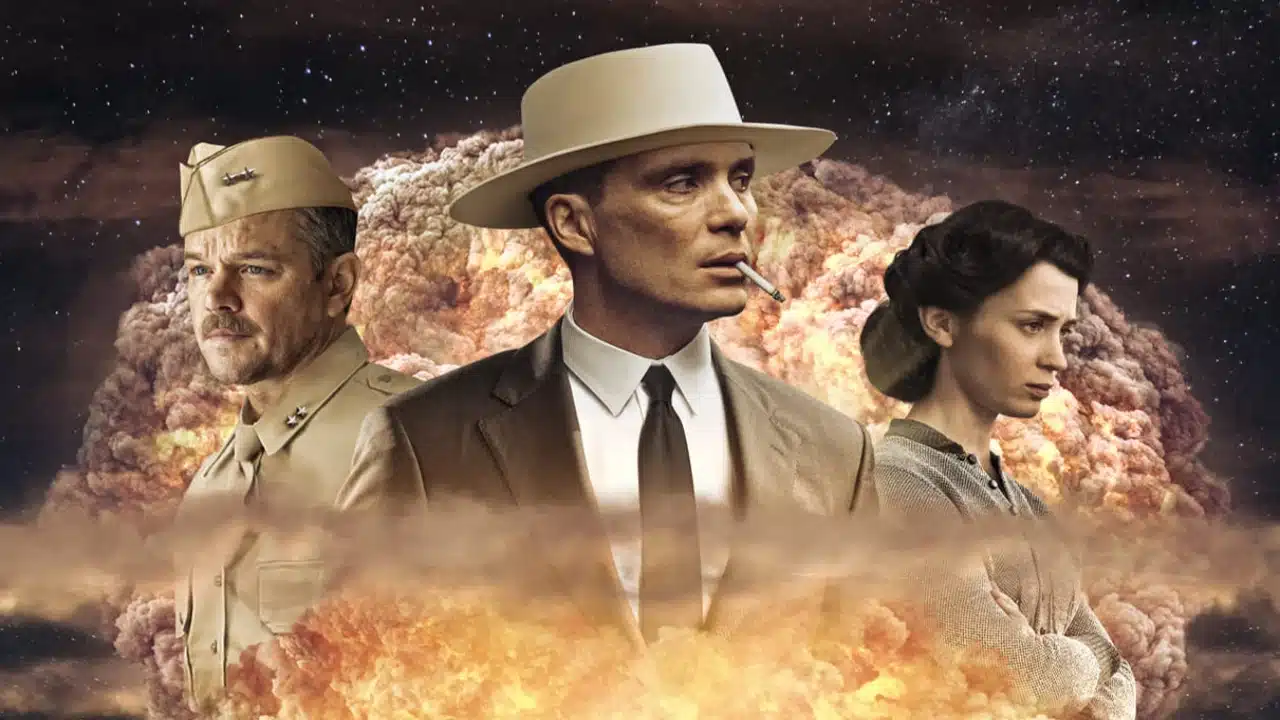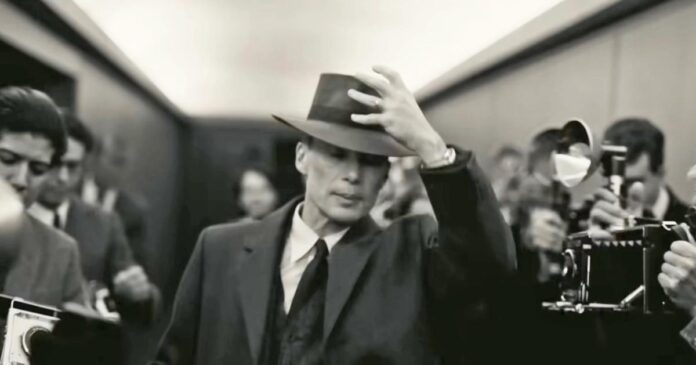J. Robert Oppenheimer, also known as “the father of the atomic bomb,” is the focus of Christopher Nolan’s breathtaking film “Oppenheimer,” which packs a monumental paradigm change into three eerie hours. The turbulent life of the American theoretical physicist who contributed to the development of the atomic bombs that were dropped on Hiroshima and Nagasaki during World War II is brilliantly charted in this drama about genius, hubris, and error, both individual and collective, that ushered in our current human-dominated era.

The film is based on the 2005 biography “American Prometheus: The Triumph and Tragedy of J. Robert Oppenheimer,” written by Kai Bird and Martin J. Sherwin, considered the definitive account of Oppenheimer’s life. The screenplay and direction by Nolan take many cues from the book in their examination of Oppenheimer’s life and work, especially his part in the Manhattan Engineer District’s (MED’s) Manhattan Project. The war in the Pacific was finally over thanks to the work of him and many other brilliant scientists of the time, who he oversaw as director of a secret weapons lab constructed in a nearly desolate stretch of Los Alamos, New Mexico.
Oppenheimer’s legacy and the events shown in this film are both shaped by the creation of the atomic bomb. Nolan focuses extensively on the bomb’s construction, which is both intriguing and horrifying, but he does not reenact the assaults; there are no documentary photos of the dead or panoramic views of cities in ruins, choices that can be seen as his ethical absolutes. The film is saturated with themes of terror and tragedy, as well as the subsequent weapons race that ensued. While Nolan’s filmmaking in “Oppenheimer” is crucially in service to the history that it depicts, the picture is a remarkable formal and conceptual achievement in its own right.
The drama begins in the 1920s with Oppenheimer as a young adult and continues through the decades as he ages and his hair becomes gray, all the while played by Cillian Murphy with a feverish intensity. The film covers both his professional and personal life, including his work on the bomb, the difficulties that followed him, the anti-Communist attacks that nearly destroyed him, and the relationships that kept him going but also caused him pain. While in Los Alamos, he has a romance with a political firebrand named Jean Tatlock (a lively Florence Pugh), and subsequently marries a seductive boozer named Kitty Harrison (Emily Blunt, in a slowly-building role).
Table of Contents
How accurate was Oppenheimer’s movie?

Oppenheimer is one of the few movies that is so faithful to the source material. Almost all of the 591 pages of Kai Bird and Martin J. Sherwin’s biography American Prometheus are condensed into the film version directed by Christopher Nolan. It seems that nothing spoken or done by or concerning J. Robert Oppenheimer is ever wasted.
In fact, the film’s style, rather than its subject matter, is where Nolan exercises the most artistic freedom. Oppenheimer, in contrast to American Prometheus, which is narrated in roughly chronological order, jumps across the history by using two nested framing devices centered on two hearings held in the 1950s. Nolan also regularly uses surreal images to portray what it must have been like inside Oppenheimer’s mind. Reviewer Matt Zoller Seitz writes that this approach “paradoxically captures the mental process of reading a text and responding to it emotionally and viscerally as well as intellectually.” This is reminiscent of the feeling of going through a book like American Prometheus.
Nonetheless, Oppenheimer is still a movie, so even the most meticulous biopics have to take corners occasionally. Here’s a breakdown of what is true and what isn’t using American Prometheus as a reference.
Oppenheimer Release Date
Universal Pictures released Oppenheimer to theaters on July 21, 2023.It will be shown in digital theaters, of course, but it will also be distributed on IMAX 70 mm (30 prints), regular 70 mm (113 copies), and 35 mm (approximately 80 prints), among other film types.
Barbie, a fantasy comedy film directed by Greta Gerwig and distributed by Warner Bros., was also released on the same day. It is based on Mattel’s Barbie fashion dolls and media empire. As a result of the clear tonal and genre differences between the two films, numerous internet users came up with memes arguing that the two films should be seen together. “Barbenheimer” became shorthand for the movement. Cillian Murphy gave his blessing to the trend, saying, “My advice would be for people to go see both, on the same day.” in an interview with La Vanguardia. The cinema industry stands to benefit if these movies are any good.
“Oppenheimer” was hit theaters globally on July 21. Watch the new trailer below.
The primary actors in the Oppenheimer cast, who portray real-life characters, are as follows:
- Cillian Murphy as J. Robert Oppenheimer
- Robert Downey Jr. as Lewis Strauss
- Matt Damon as General Leslie Groves Jr.
- Benny Safdie as Edward Teller
- Emily Blunt as Kitty Oppenheimer
- Florence Pugh as Jean Tatlock
- Josh Hartnett as Ernest Lawrence
- Michael Angarano as Robert Serber
Where to watch Oppenheimer
Given Nolan’s vocal support for going to the cinema, it’s probable that Oppenheimer won’t be made accessible for home viewing for some time. Getting tickets for a showing at your local theater is your best choice if you want to watch the film soon.
Is Oppenheimer based on a true story?
The story of Oppenheimer was inspired by actual events. The story of the film centers on J. Robert Oppenheimer and his quest to develop the first nuclear weapon.
Though he almost made a Howard Hughes movie with Jim Carrey in the early 2000s, this is Christopher Nolan’s first true biography.
American Prometheus: The Triumph and Tragedy of J. Robert Oppenheimer by Kai Bird and Martin J. Sherwin won the Pulitzer Prize and serves as the inspiration for Oppenheimer.
Did Oppenheimer regret the atomic bomb?
So, Oppenheimer did feel guilty about his part in the bombings, but did he ever offer an apology? So far as we can tell from historical reports, the great physicist never apologized formally or informally for the bomb, its usage at test sites, or its use in Japan. However, it is possible that he did so privately and it was simply never documented. For the rest of his life, he worried about the bomb and its potential to wipe out humanity, but no one ever apologized to him directly. According to Nolan, this is one of the many intriguing aspects of Oppenheimer’s life during the past two decades.


